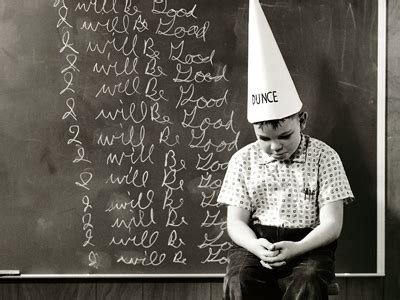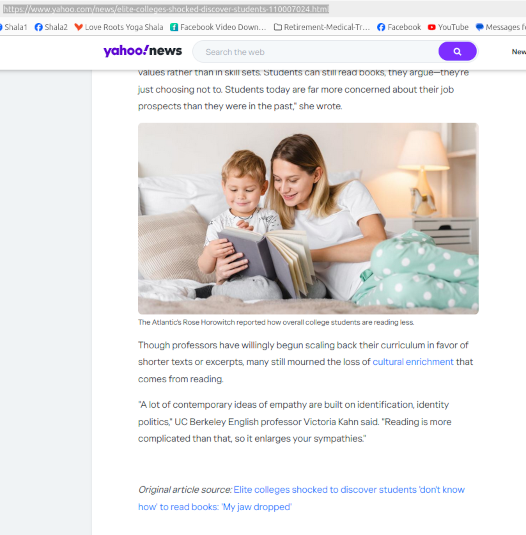There are two college profs, who voiced their opinions. I doubt that justifies the Fox news headline that "students don't know how to read a book". And exactly, why is this phenomenon only happening in "elite colleges". So apparently, if you go to state university, their students have read very book in the library?
Incorrect. There were 33 professors interviewed in the original source.
The Elite College Students Who Can’t Read Books
To read a book in college, it helps to have read a book in high school.
By
Rose Horowitch
Nicholas Dames has taught Literature Humanities, Columbia University’s required great-books course, since 1998. He loves the job, but it has changed. Over the past decade, students have become overwhelmed by the reading. College kids have never read everything they’re assigned, of course, but this feels different. Dames’s students now seem bewildered by the thought of finishing multiple books a semester. His colleagues have noticed the same problem. Many students no longer arrive at college—even at highly selective, elite colleges—prepared to read books.
This development puzzled Dames until one day during the fall 2022 semester, when a first-year student came to his office hours to share how challenging she had found the early assignments. Lit Hum often requires students to read a book, sometimes a very long and dense one, in just a week or two. But the student told Dames that, at her public high school, she had never been required to read an entire book. She had been assigned excerpts, poetry, and news articles, but not a single book cover to cover.
“My jaw dropped,” Dames told me. The anecdote helped explain the change he was seeing in his students: It’s not that they don’t want to do the reading. It’s that they don’t know how. Middle and high schools
have stopped asking them to.
In 1979, Martha Maxwell, an influential literacy scholar, wrote, “Every generation, at some point, discovers that students cannot read as well as they would like or as well as professors expect.” Dames, who studies the history of the novel, acknowledged the longevity of the complaint. “Part of me is always tempted to be very skeptical about the idea that this is something new,” he said.
Daniel Shore, the chair of Georgetown’s English department, told me that his students have trouble staying focused on even a sonnet.
And yet, “I think there is a phenomenon that we’re noticing that I’m also hesitant to ignore.” Twenty years ago, Dames’s classes had no problem engaging in sophisticated discussions of
Pride and Prejudice one week and
Crime and Punishmentthe next. Now his students tell him up front that the reading load feels impossible. It’s not just the frenetic pace; they struggle to attend to small details while keeping track of the overall plot.
No comprehensive data exist on this trend, but the majority of the 33 professors I spoke with relayed similar experiences. Many had discussed the change at faculty meetings and in conversations with fellow instructors. Anthony Grafton, a Princeton historian, said his students arrive on campus with a narrower vocabulary and less understanding of language than they used to have. There are always students who “read insightfully and easily and write beautifully,” he said, “but they are now more exceptions.”
Jack Chen, a Chinese-literature professor at the University of Virginia, finds his students “shutting down” when confronted with ideas they don’t understand; they’re less able to persist through a challenging text than they used to be. Daniel Shore, the chair of Georgetown’s English department, told me that his students have trouble staying focused on even a sonnet. .....



